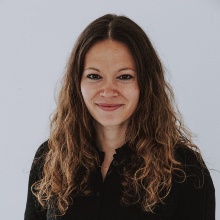Contact
Pfaffenwaldring 5 b
70569 Stuttgart
Deutschland
Room: 01.011
Office Hours
Upon request via e-mail.
Subject
I am a Ph.D. student under the supervision of Apl. Prof. Dr. Schulte Sabine Schulte im Walde. Until June 1, 2022, I was a PhD associate with the Robert Bosch GmbH in Plochingen, Germany, in the Text and Data Mining team. Since August 1, 2022, I hold a full-time scholarship funded by the Hanns Seidel Foundation. I am currently on parental leave.
My work focuses on modeling plausibility in NLP. I am specifically interested in exploring cognitive and socio-linguistics aspects as well as multilinguality.
I regularly contribute as a reviewer for NLP conferences and workshops: EACL 2023, SemEval-2023, WASSA 2023, EMNLP 2023, LREC-COLING 2024, SRW NAACL 2024, ACM-WebSci24, ARR April 2024, WASSA 2024.
From August 2023 to July 2024, Yarik Menchaca Resendiz and I represented the interests of all doctoral researchers at the IMS.
Annerose Eichel, Tana Deeg, Andre Blessing, Milena Belosevic, Sabine Arndt-Lappe, and Sabine Schulte im Walde. 2025. Tore-Klose: Record Scorer, Goal Hunter, Machine? Human Association Norms for German Personal Name Compounds. ANALOGY-ANGLE II. Vienna, Austria: ACL, August.
Anna Golub, Beate Zywietz, and Annerose Eichel. 2025. Modelling Adjectival Modification Effects on Semantic Plausibility ESSLLI 2025 Student Session. Bochum, Germany: ESSLLI, August.
Annerose Eichel and Sabine Schulte im Walde. 2024. Multi-Task Learning with Adapters for Plausibility Prediction: Bridging the Gap or Falling into the Trenches? Insights from Negative Results in NLP. Mexico City, Mexico: NAACL, June.
Annerose Eichel, Tana Deeg, Andre Blessing, Milena Belosevic, Sabine Arndt-Lappe, and Sabine Schulte im Walde. 2024. Willkommens-Merkel, Chaos-Johnson, and Tore-Klose: Modeling the Evaluative Meaning of German Personal Name Compounds. LREC-COLING 2024. Turin, Italien: ELRA, Mai.
Sabine Arndt-Lappe, Milena Belosevic, André Blessing, Tana Deeg, Annerose Eichel, and Sabine Schulte im Walde. Merci-Jens and Villen-Spahn. 2024. The evaluative semantics of personal name compounds in German. EvalMo 2024. Berlin, Germany: March. (abstract)
Annerose Eichel and Sabine Schulte im Walde. 2023. A Dataset for Physical and Abstract Plausibility and Sources of Human Disagreement. AMLAP 2023. Donostia-San Sebastian, Spain: BCBL, August. (abstract)
Annerose Eichel and Sabine Schulte im Walde. 2023. A Dataset for Physical and Abstract Plausibility and Sources of Human Disagreement. LAW-XVII 2023. Toronto, Canada: ACL, July.
Neele Falk*, Annerose Eichel*, und Prisca Piccirilli*. 2023. NAP at SemEval-2023 Task 3: Is Less Really More? (Back-)Translation as Data Augmentation Strategies for Detecting Persuasion Techniques. SemEval-2023. Toronto, Canada: ACL, July. *equal contribution
Annerose Eichel, Helena Schlipf und Sabine Schulte im Walde. 2023. Made of Steel? Learning Plausible Materials for Components in the Vehicle Repair Domain. EACL 2023. Dubrovnik, Croatia: EACL, May.
Annerose Eichel, Gabriella Lapesa, und Sabine Schulte im Walde. 2022. Investigating Independence vs. Control: Agenda-Setting in Russian News Coverage on Social Media. LREC 2022. Marseille, France: ELRA, June.
- WS 23/24, SS 24 Modeling Semantic Plausibility
- 2021-Present, PhD., Computational Linguistics, University of Stuttgart.
- 2018-2021, MSc., Computational Linguistics, University of Stuttgart.
- 2017-2018, Graduate Studies, International Studies of Computational Linguistics, Eberhard Karls University of Tübingen.
- 2013-2017, BA., Language, Culture, and Translation, German-Russian-English, Johannes Gutenberg University of Mainz.
Please note that it is unfortunately not possible to start a new thesis with me as a (co-)supervisor at the current moment.
Bachelor Students:
Tana Deeg. BSc. Natural Language Processing. University of Stuttgart (with Sabine Schulte im Walde)
Modeling the evaluative nature of German personal name compounds. (2023)
Master Students:
Frederik Wagner. MSc. Computer Science. University of Stuttgart (with Sabine Schulte im Walde)
Exploring Retrieval-Augmented Language Modeling for Material Prediction of Vehicle Components. (2024)
Helena Schlipf. MSc. Computational Linguistics. University of Stuttgart, in collaboration with the Robert Bosch GmbH (with Sabine Schulte im Walde)
Learning domain-specific material properties in the vehicle repair information domain using unstructured and structured data sources. (2022)


